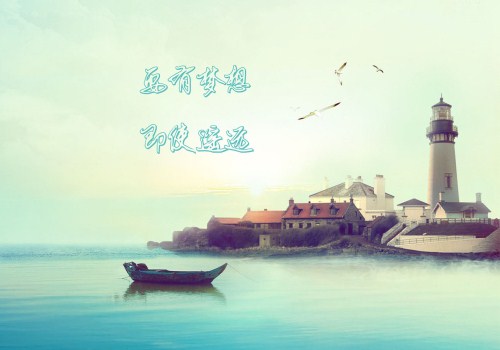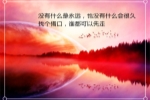
怎样度过大学时光的英文作文【一】
怎样度过大学时光的英文作文【二】
This is a story about a special and unreserved woman who has been exposed to a hostile environment but continuously and fearlessly struggling for her ideal life. The story can be interpreted as a symbol of the independent spirit.
It seems to me that many readers’ English reading experience starts with Jane Eyer. I am of no exception. As we refer to the movie “Jane Eyer”, it is not surprising to find some differences because of its being filmized and retold in a new way, but the spirit of the novel remains----to be an independent person, both physically and mentally.
Jane Eyer was a born resister, whose parents went off when she was very young, and her aunt,the only relative she had,treated her as badly as a ragtag. Since Jane’s education in Lowwood Orphanage began, she didn’t get what she had been expecting——simply being regarded as a common person, just the same as any other girl around. The suffers from being humiliated and devastated teach Jane to be persevering and prize dignity over anything else.As a reward of revolting the ruthless oppression, Jane got a chance to be a tutor in Thornfield Garden. There she made the acquaintance of lovely Adele and that garden’s owner, Rochester, a man with warm heart despite a cold face outside. Jane expected to change the life from then on, but fate had decided otherwise: After Jane and Rochester fell in love with each other and got down to get marry, she unfortunately came to know in fact Rochester had got a legal wife, who seemed to be the shadow following Rochester and led to his moodiness all the time ----Rochester was also a despairing person in need of salvation. Jane did want to give him a hand, however, she made up her mind to leave, because she didn’t want to betray her own principles, because she was Jane Eyer. The film has finally got a symbolist end: Jane inherited a large number of legacies and finally returned. After finding Rochester ’s misfortune brought by his original mad wife, Jane chose to stay with him forever.
I don’t know what others feel, but frankly speaking, I would rather regard the section that Jane began her teaching job in Thornfield as the film’s end----especially when I heard Jane’s words “Never in my life have I been awaken so happily. ” For one thing, this ideal and brand-new beginning of life was what Jane had been imagining for long as a suffering person; for another, this should be what the audiences with my views hoped her to get. But the professional judgment of producing films reminded me to wait for a totally different result: There must be something wrong coming with the excellence----perhaps not only should another section be added to enrich the story, but also we may see from the next transition of Jane’s life that “Life is like a box of chocolates, you never know what you would get.”
What ’s more, this film didn’t end when Jane left Thornfield. For Jane Eyer herself, there should always be somewhere to realize her great ideal of being independent considering her fortitude, but for Rochester, how he can get salvation? The film gives the answer tentatively: Jane eventually got back to Rochester. In fact, when Jane met Rochester for the first time, she scared his horse and made his heel strained, to a certain extent, which meant Rochester would get retrieval because of Jane. We can consider Rochester’s experiences as that of religion meaning. The fire by his frantic wife was the punishment for the cynicism early in his life. After it, Rochester got the mercy of the God and the love of the woman whom he loved. Here we can say: human nature and divinity get united perfectly in order to let such a story accord with the requirements of both two sides. The value of this film may be due to its efforts to explore a new way for the development of humanism under the faith of religion.
怎样度过大学时光的英文作文【三】
餐桌上的爱
奶奶在老家,一听说“我”这个许久不见到的“大孙子”今天上午要到这儿了,立马失去了往日的愁思,高兴得溜到厨房,磨亮了刀子,又是***鸡,又是买饮料,忙活了大半个时辰,刚忙活完,擦了把汗,便坐下来休息,板凳还没坐热呢,又听到了我那可爱的声音:“奶奶!我回来啦!”奶奶又高兴地跑了出去,把我接进屋来,一见时间不早了,便说:“开饭喽!”话音刚落,就将我报道了椅子上,我便喝起了饮料,爷爷拿出了他的“五粮液”喝上了几杯。趁着我上厕所,爷爷奶奶将鸡汤中几块骨头捞了出来,放在自己的地方,又将我这儿的一部分骨头弄到自己这儿,又夹了一块鸡肋,等我回来后,装做吃得津津有味,还时不时的念叨:“快吃呦!不然要被吃光喽!”我一听,急得连忙一口气吃了两块。
这不是白酒
一天,我拿着装了雪碧的杯子对爷爷说:“爷爷,来点雪碧吧!”爷爷说:“我喝白酒。”我便想:这东西有雪碧好喝吗?
有一次,我和爷爷去赶集,听见两个六旬老头儿在谈话,具体说什么已记不大清,只记得站右边的拿着一瓶白酒对另一个说:“侃!牛盘山二锅头!我儿子买给我的',很贵嗒!而且还很辣!”另一个说道:“我不信!除非你给我尝尝!”“切!就知道你会说这句话,我才不给呢.”于是,我又想:白酒里没有辣椒呀,为什么他们说辣呢?于是,一股强烈的愿望在我的心中生根、发芽——尝白酒!
终于有一次好机会,我蹑手蹑脚地走向那瓶白酒,然后小心翼翼地打开盖子,用舌尖小心地碰了一下酒,“咦?怎么没味?”我感到奇怪,好奇心牵引着我,终于,我壮着胆子喝了一口……没感觉,又喝了一口,然后使出浑身解数去努力地感受着,总算感受到了这一丝的辣味,“着白酒和白开水差不多嘛!”现在我才知道,爷爷在酒里加水喝,时装做给我看的。我感到了一丝愧疚。
意外的惊喜
在老家呆了好久,终于要离开了,在离开的前一天,我和爷爷去最后一次上街赶集了。在买东西时,一辆酷酷的玩具车映入我的眼帘,我很想要,爷爷说:“大孙子,买了这个就没钱买菜了,以后再买吧。”我便依依不舍得离开了。爷爷买完菜后,手上紧紧捏着36元钱——玩具车的价格。
下午,爷爷有一阵子不在家,奶奶说是给我去买零食了,要留着回昆山的路上吃。
我和爷爷分别了,奶奶与我回昆山了,临走时,爷爷用“贪婪”地目光紧盯着我,想要将我牢记在心……在车上,我找零食时,看到了那天我在超市看中的那辆36元的玩具车,我捧着玩具车,流下了一行行晶莹的泪珠……
那一段在老家度过的时光,我永生难忘!
怎样度过大学时光的英文作文【四】
马皮皮是个"调皮大王”。他又高又瘦,喜欢穿带有恐怖人物的衣服,因为这样他就可以更好的去吓唬别人。马皮皮还长着一个瓜子脸,眉毛长长的,睫毛黑黑的,眼睛又大又圆,如果你看到他眼珠在转,就最好离他远一点,因为他可能想到了一个鬼主意来整你呢,鼻子翘翘的,不大不小,没有什么特别的,嘴巴弯弯的,笑起来阴森森的,像个小恶魔。他额头上还有一个王字,不不……,这个王可不是与生俱来的哦,是他在书法课上用毛笔自己画的。
有一次,马皮皮在家里写作业,写着写着就玩起了泡泡枪。他用泡泡枪把整个房间弄的到处是泡沫,就在他玩得正起劲的时候,他妈妈突然回来了,看到了这一情景,立刻大叫一声“马皮皮,你给我停下。”马皮皮不但不停下,还说:“老师教我们写关于泡泡的作文,我当然要感受一下。”妈妈见马皮皮还顶嘴,就立刻把他暴揍了一顿,还罚他拖一个月的地。
还有一次,马皮皮正和他的妈妈,在商场里逛街。忽然,马皮皮眼前一亮,他看到了一件非常酷的衣服,心想:如果,这酷衣服配上我帅气的脸,那一定更酷。于是,就对妈妈说:"妈妈,你给我买这件衣服,好不好?”妈妈说:“不行,家里那么多这种衣服,还要干嘛?”马皮皮见妈妈不同意,就难过的走了,可没走一会儿,他就想到了一个鬼主意。于是,马皮皮又跑到妈妈那说":妈妈,你累不累啊!我帮你背包吧。”“那好吧,但你千万别把包弄丢哦。”妈妈边说边把包递给马皮皮。马皮皮拿到包后就趁妈妈在看衣服的时候,奔向刚才那家卖酷衣服的服装店。用妈妈包里的钱把自己刚才看上的衣服给买了下来。回去的时候,他害怕妈妈发现那件衣服,并把衣服拿回去退,所以就把衣服藏在了他自已的包里。可最后妈妈还是发现了那件衣服,不仅衣服被退了回去,而且马皮皮还吃了一顿“竹笋炒肉。”
你说他是不是很调皮呢?
怎样度过大学时光的英文作文【五】
先明确一下读书笔记的原则:
1. 不要为了做笔记而做笔记。笔记是帮助构建知识体系的工具。笔记代替不了思考,只能作为思考的补充。
2. 做了笔记,要多看,否则,毫无作用。
3. 不要依赖笔记。笔记的作用就是让你不再需要笔记。
再说一下读书笔记的几个误区:
1. 笔记就是摘抄
摘抄是最没效率的方法。如果需要记录大段的原文以供引用,请拍照。这就是数码时代的便利。
2. 笔记就是给一本书画大纲
这同样是效率极低的方法。一本书的内容,不可能全部都使你感兴趣,能纳入你的知识体系。而且,仅仅因为“这本书里有这样的内容”,就记下自己不喜欢也不需要的东西,会影响做笔记的积极性。
3. 笔记要保存起来,时时翻看
前期确实如此,但如果一本笔记做了几年,当你需要时,还得翻开笔记去查——那这笔记做了有什么用?你的知识是储存在大脑里的,不是储存在笔记里的。笔记只有两种:一种是原文,以备查询(拍照或者用电脑录入即可);一种是思维架构,帮助完善知识体系,用完就可以丢弃。
说说我的笔记方法。
当你看一本书,读罢一章,觉得信息量巨大,醍醐灌顶,拍案叫绝,恨不得马上把这一章画大纲、抄下来——这时,先别忙着这样做。
先问自己:这一章里面,感兴趣的是哪些?有哪些能纳入自己的知识体系之中?
比如,读古希腊史,你也许不会对克里特宫殿里有什么器皿、迈锡尼人驯养了什么家畜、伊奥尼亚人种植了什么作物感兴趣,你比较感兴趣的是:希波战争的整个过程。它是如何发生的?双方的实力对比如何?有哪些经典的小战役?
那么,带着这个问题,再读一遍,其他无关的信息,不要理会。
读的时候,看到任何一个不懂的词、不清楚的概念,立刻上网查,务必弄明白。
当你把这个过程梳理清楚了,好,眼睛离开书。现在,请你在心中想象一个听众,用你的话把这个知识点解释给他听。
说的过程中,遇到任何不清楚的地方,停下来,上网查,马上弄明白。
等你可以流畅地把“希波战争发生的全过程”解释清楚了,打开笔记本,在本子上记下要点。这些要点,就是你在叙述时,那些比较重要的节点,那些“牵一发而动全身”的点。
下一步,请你思考,这个东西,可以跟知识体系中的.什么联系起来?
你通过这个知识点,可以联想到什么你已经知道了的东西?
以这个点为圆心,把它们记在它的周围。
这就是你关于这个知识点的图式。
好了,这个知识点已经告一段落,请在笔记下面标明日期、书名、页码,然后就可以翻开下一章了。
接下来,只需要每周一次,或者几天一次,翻开这几天做的笔记,根据自己记下的图式,将这个知识点完完整整地回忆出来。
然后,根据周围的联系元素,将它在你整个知识图式中过一遍。
直到你对这个点已经烂熟于心,这则笔记也就完成它的使命了。
文/杨绛(注:钱钟书夫人)
许多人说,钱钟书记忆力特强,过目不忘。他本人却并不以为自己有那么“神”。他只是好读书,肯下功夫,不仅读,还做笔记;不仅读一遍两遍,还会读三遍四遍,笔记上不断地添补。所以他读的书虽然很多,也不易遗忘。
他做笔记的习惯是在牛津大学图书馆(Bodleian他译为饱蠹楼)读书时养成的。因为饱蠹楼的图书向例不外借。到那里去读书,只准携带笔记本和铅笔,书上不准留下任何痕迹,只能边读边记。钟书的“饱蠹楼书记”第一册上写着如下几句:“廿五年(一九三六年)二月起,与绛约间日赴大学图书馆读书,各携笔札,露钞雪纂、聊补三箧之无,铁画银钩,虚说千毫之秃,是为引。”第二册有题辞如下:“心如椰子纳群书,金匮青箱总不如,提要勾玄留指爪,忘筌他日并无鱼。(默存题,季康以狼鸡杂毫笔书于灯下)”这都是用毛笔写的,显然不是在饱蠹楼边读边记,而是经过反刍,然后写成的笔记。
做笔记很费时间。钟书做一遍笔记的时间,约莫是读这本书的一倍。他说,一本书,第二遍再读,总会发现读第一遍时会有很多疏忽。最精彩的句子,要读几遍之后才发现。
钟书读书做笔记成了习惯。但养成这习惯,也因为我们多年来没个安顿的居处,没地方藏书。他爱买书,新书的来源也很多,不过多数的书是从各图书馆借的。他读完并做完笔记,就把借来的书还掉,自己的书往往随手送人了。钟书深谙“书非借不能读也”的道理,有书就赶紧读,读完总做笔记。无数的书在我家流进流出,存留的只是笔记,所以我家没有大量藏书。
钟书的笔记从国外到国内,从上海到北京,从一个宿舍到另一个宿舍,从铁箱、木箱、纸箱,以至麻袋、枕套里出出进进,几经折磨,有部分笔记本已字迹模糊,纸张破损。钟书每天总爱翻阅一两册中文或外文笔记,常把精彩的片段读给我听。我曾想为他补裰破旧笔记,他却阻止了我。他说:“有些都没用了。”哪些没用了呢?对谁都没用了吗?我当时没问,以后也没想到问。
钟书去世后,我找出大量笔记,经反复整理,分出三类。
第一类是外文笔记(外文包括英、法、德、意、西班牙、拉丁文)。除了极小部分是钟书用两个指头在打字机上打的,其余全是手抄。笔记上还记有书目和重要的版本以及原文的页数。他读书也不忽略学术刊物。凡是著名作家有关文学、哲学、政治的重要论文,他读后都做笔记,并记下刊物出版的年、月、日。钟书自从摆脱了读学位的羁束,就肆意读书。英国文学,在他已有些基础。他又循序攻读法国文学,从十五世纪到十九世纪而二十世纪;也同样攻读德国文学、意大利文学的历代重要作品,一部一部细读,并勤勤谨谨地做笔记。这样,他又为自己打下了法、德、意大利的文学基础。以后,他就随遇而读。他的笔记,常前后互相引证参考,所以这些笔记本很难编排。而且我又不懂德文、意大利文和拉丁文。恰逢翻译《围城》的德国汉学家莫宜佳博士(ProfessorDr.MonikaMotsch)来北京。我就请她帮我编排。她看到目录和片断内容,“馋”得下一年暑假借机会又到北京来,帮我编排了全部外文笔记。笔记本共一百七十八册,还有打字稿若干页,全部外文笔记共三万四千多页。
钟书在国内外大学攻读外国文学,在大学教书也教外国文学,“院系调整”后,他也是属于文学研究所外国文学组的。但他多年被派去做别的工作,以后又借调中国古典文学组,始终未能回外文组工作。他原先打算用英文写一部论外国文学的著作,也始终未能如愿。那些外文笔记,对他来说,该是“没用了”。但是对于学习外国文学的人,对于研究钱钟书著作的人,能是没用吗?
第二是中文笔记。他开始把中文的读书笔记和混在一起。一九五二年知识分子第一次受“思想改造”时,他风闻学生可检查“老先生”的日记。日记属私人私事,不宜和学术性的笔记混在一起。他用小剪子把日记部分剪掉毁了。这部分笔记支离破碎,而且都散乱了,整理很费功夫。他这些笔记,都附带自己的议论,亦常常前后参考、互相引证。以后的笔记他都亲自记下书目,也偶有少许批语。中文笔记和外文笔记的数量,大致不相上下。
第三类是“日札”钟书的读书心得。日札想是“思想改造”运动之后开始的。最初的本子上还有涂抹和剪残处。以后他就为日札题上各种名称,如“容安馆日札”、“容安室日札”、“容安斋日札”;署名也多种多样,如“容安馆主”、“容安斋居士”、“槐聚居士”等等;还郑重其事,盖上各式图章。我先还分门别类,后来才明白,这些“馆”、“斋”、“室”等,只是一九五三年“院系调整”后,我家居住的中关园小平房(引用陶渊明《归去来辞》“审容膝之易安”)。以后屡次迁居,在钟书都是“容膝易安”的住所,所以日札的名称一直没改。
日札共二十三册、二千多页,分八百零二则。每一则只有数目,没有篇目。日札基本上是用中文写的,杂有大量外文,有时连着几则都是外文。不论古今中外,从博雅精深的历代经典名著,到通俗的小说院本,以至村谣俚语,他都互相参考引证,融会贯通,而心有所得,但这点“心得”还待写成文章,才能成为他的著作。《管锥编》里,在在都是日札里的心得,经发挥充实而写成的文章。例如:《管锥编。楚辞洪兴祖补注》十八则,共九十五页,而日札里读《楚辞》的笔记一则,只疏疏朗朗记了十六页;《管锥编。周易正义》二十七则,共一百零九页,而日札里读《周易》的笔记,只有一则,不足十二页;《管锥编。毛诗正义》六十则,共一百九十四页,而日札里读《毛诗》的笔记二则,不足十七页。
钟书在《管锥编》的序文中说:“……遂料简其较易理董者,锥指管窥,先成一辑”、 “初计此辑尚有《全唐文》等书五种,而多病意懒,不能急就。”读《全唐文》等书的心得,日札里都有。他曾对我说:“我至少还想写一篇《韩愈》、一篇《杜甫》。”这两篇,想是“不易理董者”,再加“多病意懒”,都没有写出来。日札里的心得,没有写成文章的还不少呢。
这大量的中、外文笔记和读书心得,钟书都“没用了”。但是他一生孜孜石乞石乞积聚的知识,对于研究他学问和研究中外文化的人,总该是一份有用的遗产。我应当尽我所能,为有志读书求知者,把钟书留下的笔记和日札妥为保存。
感谢商务印书馆愿将钱钟书的全部手稿扫描印行,保留着手稿原貌,公之于众。我相信公之于众是最妥善的保存。但愿我这办法,“死者如生,生者无愧”。
杨绛敬序 二零零一年五月四日
怎样度过大学时光的英文作文【六】
人生,始终充满战斗激情。
——惠特曼
你也许想过:生命是宝贵的,人生很短,那人的一生应该怎样度过呢?我确实也思考过这个问题。
我认为:人的一生,绝对不能虚度!
首先,每个人在年轻时应当励志。
孙中山先生说过:“吾志所向,一往无前,愈挫愈奋,再接再厉”如果我们有了志向,那么我们也就有了奋斗的动力,同时又有了青春活力。
《格言联璧》中有这样一断话:“志之所趋,无远勿届,穷山复海不能限也。志之所向,无坚不入,锐兵固甲,不能御也。”一个有志向的青年人,才算得上一个真正的`青年人!孔子十五岁励志做学问,三十岁有所成就。
我们绝对要有志向,要有对未来的目标,而不是“当一天和尚撞一天钟”。
现在网络上流行一个词,叫“佛系”。
我们应该佛系吗?答案当然是否定的!我们青年人必须斗志昂扬!我们要为自己而活,为自己而励志,也要为祖国而活,为祖国而励志!唯有这样,我们的生命才是值得的,我们才没有白白浪费这大好时光。
有了志向,就要付诸行动。
我们绝对不能纸上谈兵,光是空想。
而奋斗,是无止息的,生命不息,奋斗不止。
比如如果你励志做一名科学家,你就需要从小学、初中开始好好学习,考上好高中,进而考上好大学。
而有一个误区:考上大学就不需要努力了。
实则不然,我们需要不断提升自己,让自己更加优秀,学无止境。
如果我们一直奋斗下去,无论年龄如何,总是有活力的。
人活着,应当修养品格。
罗曼。
罗兰说过:“没有伟大的品格,就没有伟大的人。”佛桑德斯说过:“品格能决定人生,它比天资更重要。”一个人只有有了高尚的品格,才能立身处世,才会受人尊敬。
一个拥有如金子般闪闪发光品格的人,心里也是敞亮的,心情也是快乐的。
我读过《钢铁是怎样炼成的》,最喜欢里面的这句话:“一个人的一生应该是这样度过的:当他回首往事的时候,他不会因为虚度年华而悔恨,也不会因为碌碌无为而羞耻。”所以我为了不虚度一生,会立下志向并为之奋斗,并修养品格。
少年们,青年们,未来将是我们的时代!愿我们每个人都能不虚度年华!
怎样度过大学时光的英文作文【七】
I read the Chinese version of “Camille” a few years ago. At that time I was deeply moved by the main character Marguerite Gautier. “Camille” or “The Lady of the Camellias” by Alexandre Dumas, fils, is the story of Marguerite Gautier, a young courtesan, or kept woman, in Paris in the mid 1800's, and how she falls in love with a young man, Armand Duval, and then tries to escape from her questionable past. Unfortunately, it comes back to haunt her and she ends up returning to that life and dies painfully and alone, but with the knowledge that she was a noble woman at heart. When I first began to read the book, I did not care for Marguerite or her attitude or lifestyle, but as I got further into the narrative, I realized that her saucy attitude was a front to cover the lonely woman that she really was. She felt used, abused and unloved, until the gentle Armand Duval came into her life and showed her that he loved her as a person and not for what she could do for him. It must have taken great courage for Marguerite to leave the life she had lived for so long, knowing all along that it was probably too good to be true and would not last indefinitely. And it also showed that Marguerite really loved Armand Duval for she could even change herself for him.
However, happiness didn’t last for long. When M. Duval, Armand's father, came to her, pleading for her to leave Armand to save both Armand's reputation and that of his younger innocent sister, Marguerite saw a way to become pure of heart, if not in body. She felt that it was her duty, because she loved Armand so much, to do this even though it meant giving up her own happiness and hurting Armand temporarily. She reluctantly returned to her former life, knowing that.some day Armand would forgive her. Sadly, she died in debt and basically alone, except for her one female friend, Julie Duprat, who helped her during her illness. She had her journal sent to Armand after her death, explaining why she had made the choices she had. I think Dumas's last few lines about Marguerite being the exception, not the rule were quite true, and I also agreed with his view that while her lifestyle could not be condoned, we as a society assume that all of these type of women are cold and heartless, while this may not always be the case. A person can make the wrong choices in life when they are young, and try to redeem themselves, but sometimes past situations prevent them from changing their lives, even though they desperately wish to do so. This applies to both men and women in many different types of circumstances: involvement in crime; drug or alcohol abuse; gambling; prostitution; financial problems; poor marriage choices; etc. And this is the fact, which exists in the whole society.
As far as the other characters in the book, I think Marguerite was right in saying that no one truly cared about her, but only wanted something from her, the only exceptions being Armand and Julie Duprat. Of course, the Comte de G. and Comte de N. wanted her body and appearance. The
Duke needed to “wake up and smell the coffee” and realize that she could never replace his dead daughter. If he truly cared, he could have helped her leave her lifestyle without “keeping” her himself. And lastly, Prudence was a blood-sucking leech who used Marguerite almost worse than the men. I also think she was jealous of the fact that Marguerite had so much more courage than herself and someone truly loved her.
Last morning, when tiding my bookshelf, I took this book out of the shelf, and a dried flower flew away from the book. It was pale blue, very transparent, with thin fine veins. a dried flower flew away from the book. It was pale blue, very transparent, with thin fine veins. I held it against the morning light and blew on it. The soft breeze carried it away. Camille is just like the camellia, she could never escape from the destiny of withering. But it wasn’t her fault; it’s because of the evil of Capitalism and the hideousness of that society.
Suddenly, I remembered a saying: “Women are like the flowers”. Those pretty women are like those beautiful flowers; their delicate beauty makes people feel they are the miracle of life. However, even the God envies their beauty. It seems that beautiful women always have tragic endings. As we are normal persons, even we can see the hideousness of humanity that results in their fate of withering, we can at most ask quietly in our hearts: Where have those beautiful flowers gone? Where have they gone?
The Life And Adventures Of Robinson Crusoe
It seemed to be such a coincidence that the night after I finished reading The Life And Adventures Of Robinson Crusoe, I was to dine in a restaurant distinctly related to the book itself. This restaurant was no other than the famous American-styled “Friday ’s. ” The reason for mentioning this restaurant is quite straightforward to all the gentlemen, ladies and children who have read the novel and enjoyed it, which is the fact that this restaurant was, most likely, named after the American Native in Robinson Crusoe, called Friday. This restaurant offers very exceptional service, for instance when the waitresses are asked to order dishes they kneel rather than stand, which, unlike the other restaurants I have been to, makes it easier for the customers to hear them speak. Moreover, Friday’s friendly services to the customers help them to make better choices when ordering dishes. I remembered when I went to Friday ’s last time; the waitress kindly described the items on the menu with precise details. It turned out that the combo I initially wanted was designed to be shared among a large group, not to be eaten by one person. I think this restaurant shows many commendable features similar to that of Friday. Friday brought emotional warmth to the people around him with his appealing personality. I think it was this personality that affected Crusoe and made him say that he loved Friday when Crusoe didn ’t express love for his parents, brothers, sisters, or even his wife. “When he espied me, he came running to me, laying himself down again upon the ground, with all the possible signs of an humble, thankful disposition, making many antic gestures to show it to let me know how he would serve me as long as he lived.” This was what Friday did after Crusoe had rescued him from the two savages chasing him. It was easy for me to see why Crusoe had loved Friday. After sometime, Crusoe and Friday were to rescue Friday’s father. When Friday reunited with his father, the scene was easy to move anyone: “It would have moved anyone to tears to have seen how Friday kissed him, embraced him, hugged him, cried, laughed, halloed, jumped about, danced,
sung; and then sung and jumped about again, like a distracted creature. It was a good while before I could make him speak to me.” This is my favourite chapter in the whole book. It is hard to see why Friday is an ex-savage when he can have personalities more praiseworthy than many civilized people, viz. Crusoe himself. “When he (Friday went to him (Friday’s father, he would sit down by him, open his breast, and hold his father’s head close to his bosom, half an hour together, to nourish it; then he took his arms and ankles, which were numbed and stiff with the binding, and rubbed them with his hands.” Furthermore, Friday’s expression of loyalty in asking Crusoe to kill him rather than leave him is more heartfelt than anything Crusoe ever says or does.
Crusoe, on the absolute contrary, seems incapable of deep feelings, as shown by his account of leaving his family—he never shows any emotions. After a moving lecture from Robinson’s father about his future, he still decided to follow his own wandering ambition. Careless was he about the wishes of his parents to keep him alive and prosperous, as he was the only child left in the family. When he came back from the island which he had lived on for twenty eight years, he found that it had been too late to tell his parents that he was still alive, but yet again he did not feel sorry for them; he also did not feel sorry for the two people who had to live in misery for nearly thirty years under the allusion all of their sons were dead. He had the same feelings for his wife: when he was married, he said it was “not either to my disadvantage or dissatisfaction”, implying that it was also neither to his advantage nor his satisfaction. Moreover, after his wife died, Robinson did not think of looking after the three children they had, but went back to the island, which he had lived on for twenty-eight years. It was on this trip which Robinson Crusoe revisited “His Island ” as he called it. I feel that Robinson ’s indifference to his family is almost emotionally cruel.
Before had clearly shown the contrast between Crusoe’s and Friday’s personalities, as when Friday, in his joyful reunion with his father, displayed far more emotion toward his family members than Crusoe, whereas Crusoe never mentions missing his family or dreams about the happiness of seeing them again. I think Defore is very successful in introducing Friday as part of the novel, it makes the whole novel seem much more complete and gripping to the reader, as well as proving that Defoe’s ideology of racism is civilized unlike many other Europeans at that time; natives and savages are not worse than others but can perhaps even be more modern and civilized. Those are the reasons of why I like The Life And Adventures Of Robinson Crusoe and Friday.

















